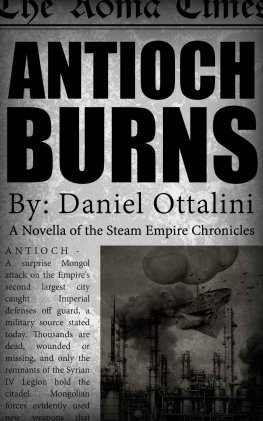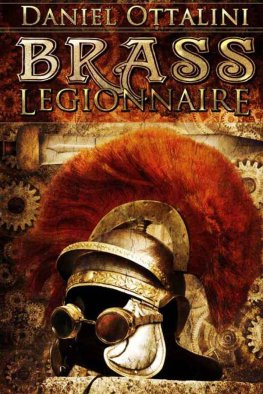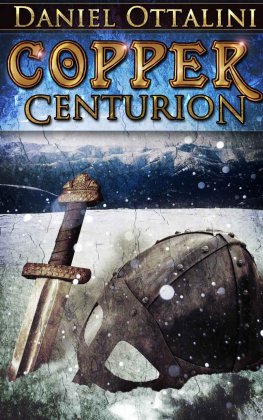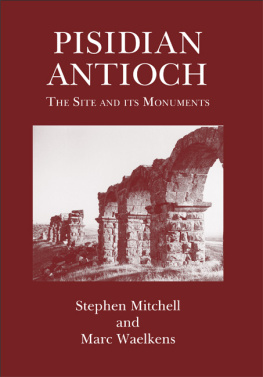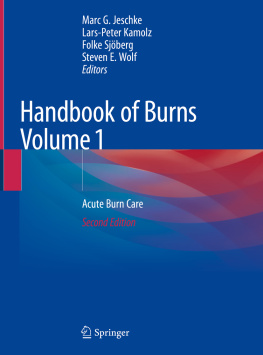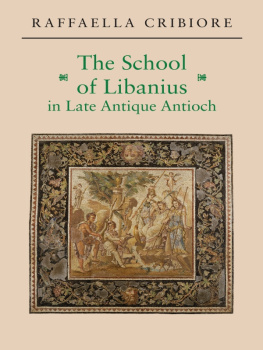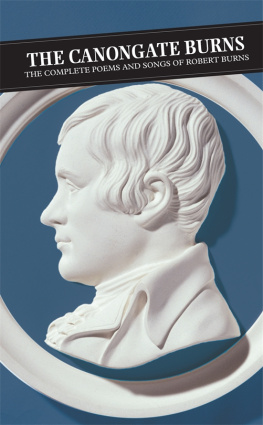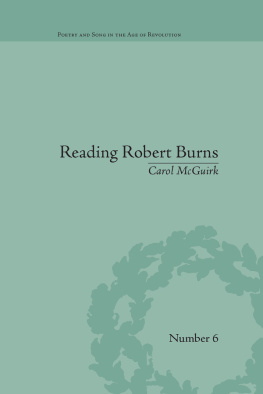Daniel Ottalini - Antioch Burns
Here you can read online Daniel Ottalini - Antioch Burns full text of the book (entire story) in english for free. Download pdf and epub, get meaning, cover and reviews about this ebook. year: 2014, publisher: Heart Ally Books, genre: Science fiction. Description of the work, (preface) as well as reviews are available. Best literature library LitArk.com created for fans of good reading and offers a wide selection of genres:
Romance novel
Science fiction
Adventure
Detective
Science
History
Home and family
Prose
Art
Politics
Computer
Non-fiction
Religion
Business
Children
Humor
Choose a favorite category and find really read worthwhile books. Enjoy immersion in the world of imagination, feel the emotions of the characters or learn something new for yourself, make an fascinating discovery.
- Book:Antioch Burns
- Author:
- Publisher:Heart Ally Books
- Genre:
- Year:2014
- ISBN:9780985374099
- Rating:3 / 5
- Favourites:Add to favourites
- Your mark:
- 60
- 1
- 2
- 3
- 4
- 5
Antioch Burns: summary, description and annotation
We offer to read an annotation, description, summary or preface (depends on what the author of the book "Antioch Burns" wrote himself). If you haven't found the necessary information about the book — write in the comments, we will try to find it.
Antioch Burns — read online for free the complete book (whole text) full work
Below is the text of the book, divided by pages. System saving the place of the last page read, allows you to conveniently read the book "Antioch Burns" online for free, without having to search again every time where you left off. Put a bookmark, and you can go to the page where you finished reading at any time.
Font size:
Interval:
Bookmark:
Daniel Ottalini
Antioch Burns
Dear Reader,
The following text is a narrative account of the events occurring during the siege of Antiochia by the Mongol Invasion Force in the 1854 th year of the Christian Lord. This is one of the few confirmed documents on file about the fall of Antioch. All attempts have been made to verify the facts of this report. Until further witnesses come forward or more evidence is discovered, I fear that this is the most we will ever know about the fateful events surrounding one of the bloodiest periods in Romes history.
Signed,
Dannelus Ottalinia
Senior Transcriber amp; Historian Emeritus
Byzantium College of Warfare
August 1, 1862
Day One: The Merchants Tale
The countryside flew by at a prodigious rate, the horses of the auxilia scouting unit eating up the leagues of rolling hills and farmland. The double score of men rode two abreast, sunlight shining off their scale armor. The detachment of horsemen sent up a thin cloud of dust from the dirt road as they crested a low rise, their leader reining in his steed. Decanus Marius Quinctius Regillus reached into his saddlebag and pulled out a map. He traced their route with his gloved finger.
According to the merchants report, he saw the burning villas down this way. He also said there was a lot of Easterner cavalry. Probably one of those damnable tribal disputes lighting up again, Regillus quipped to his auxilia. But still, orders are orders. Lets check it out. Eyes open, sing out if you see anything.
Out here on the eastern border of the Imperial Roman Empire, the massed cavalry forces of the Mongolian Khannates were the main threat, and the Romans had been forced to develop their forces in kind. The boys originally drafted from the cities and towns were no match for the veteran steppe riders. Most of these boys had not survived the first Roman-Mongolian War. Those that did were tough, wily, and exceptionally tricky to lead. But once you gained their trust and fellowship, the bond was unbreakable.
Regillus was different. The youngest son of Senator Quinctius Janus Regillus was nobly born, more the scholar than soldier. The fact that he had survived the two years of brutal, no-holds-barred warfare spoke to his skill and tenacity. That he rose in rank to lead an auxilia detachment, the ground based eyes and ears of the Roman Army, spoke to his intelligence. That he had done so without buying in to a higher rank, as many of his peers had, revealed his character. Regardless of his background, his men respected him for those two reasons. He would not throw their lives away needlessly, and he was smart enough to not pretend to know everything. Many soldiers could not count themselves so lucky in their leadership.
Regillus guided his men off the dirt roadway, to better mask their dust cloud as they approached the supposed scene of the attack. They rode through the field, trampling the high crops with impunity. Finally, the horsemen crested a short rise, and the officer reined his men in.
In the name of Jupiter Magnus Regillus jaw dropped, gaping at the sight laid out before him. Further down the valley, a massive tent city filled several huge tracts of farmland. The dome shaped huts of the Mongols had grown like mushrooms overnight. Banners flapped in the wind, too many to count. The rich smell of manure, horses, and trampled crops registered with the officer as he motioned to his men to dismount. The cavalrymen spread out to form a loose perimeter, their folding repeaters locked into place, wire stocks nestled into shoulders, fingers on the trigger. They scanned the fields of rippling crops and occasional rocky hills with nervous eyes. They too had seen the substantial enemy army encamped in the valley in the distance.
Regillus second in command, Limes Vegiutus, walked up beside his commander, pushing vegetation out of his way.
Sir? What should we do?
Hopefully they have yet to see our dust cloud, but I would not count on it. He told his junior officer. Looks like that merchant was right.
He pushed his way though the crops and back onto the road. He could track the motion of his men through the wheat as they moved to the edge of the cover. Just beyond the field lay the Via Thapsacus, the main trade route leading northeast towards Mongolian territory.
Removing his helm, Regillus caught sight of the slightly blurry black and white photograph of his family nestled amongst the interior webbing of his helmet. He paused, said a quick prayer to his gods, then handed the shining galea to one of his men, before crouching low and running across the road. He found shelter besides a few scraggly roadside bushes to get a better view of the land. Beckoning to his junior officer, he crouched down in the soil. Vegiutus joined him after copying his experienced commanders movements. Lifting the binoculars to his face, he spoke in a low, rapid voice; Vegiutus scribbled down his observations.
At least 60,000 men probably. Appears to be two thirds horse archers, but theyve got some infantry guarding those covered wagons. I would wager ten good denarii that it holds some type of artillery train. He scanned the position, looking for the pickets. He cursed as he noticed the camp beginning to stir. Some type of chief was waving his hands and pointing to their position.
Theyve spotted our dust cloud. Were in trouble. Run back to the horses and get that report onto a messenger pigeon. Antiochia must know about this and mobilize their forces. I dont see how any of the border defenses could hold them back, but surely some word must have gotten out. He mused, brain in overdrive as he analyzed the situation.
Sir? Vegiutus asked, nervously licking his dry lips. He looked a bit pale in the hot sun, the prospect of soldiering far less exciting when faced with a real, live enemy.
Youre still here? Regillus said sternly. Vegiutus scurried back across the road. What did I do to get stuck with the generals cousin? Poor kid can barely stomach the sight of these barbarians, and were a good two miles or so away.
He made his way back to the horses, jogging now, the sweat from the hot day trickling down his back and sides. He twirled his finger in a loop, silently directing his men. His auxilia quickly mounted up, and they wheeled around, galloping back through the field and onto the road.
We must put some distance on them, then pull back on the horses. We dont want them to go lame. He shouted at Vegiutus, who nodded and signaled the rest of the men. The column raced along the roads. Their dust cloud formed a long, wavering tail behind them. Regillus could care less who spotted them now. Speed was of the essence. How had they gotten past the border forts? What about the other border cities?
How do you think they did it, sir? Vegiutus shouted to him. He looked scared. Hes probably never actually seen a real easterner before, Regillus realized.
They must have figured out how to bypass the forts or neutralize them somehow! he called back. They were approaching the first of many small settlements that speckled the valleys northeast of the city. He stopped his horse, his men sawing abruptly at their reins. A scene of devastation met their arrival.
This can only mean one thing, he told his green-faced junior officer, the easterners have gotten behind us and are already loose. We must make it to Antioch and warn the city.
But sir, we sent ahead the messe-
Regillus made a chopping motion in the air with his hand, interrupting his younger companion.
And we know that Mongols are crack shots with those horsebows of theirs. Plus theyre fast riders and eagle eyed. If there are raiders about, I give that bird only one chance in five it will reach Antioch.
Font size:
Interval:
Bookmark:
Similar books «Antioch Burns»
Look at similar books to Antioch Burns. We have selected literature similar in name and meaning in the hope of providing readers with more options to find new, interesting, not yet read works.
Discussion, reviews of the book Antioch Burns and just readers' own opinions. Leave your comments, write what you think about the work, its meaning or the main characters. Specify what exactly you liked and what you didn't like, and why you think so.

